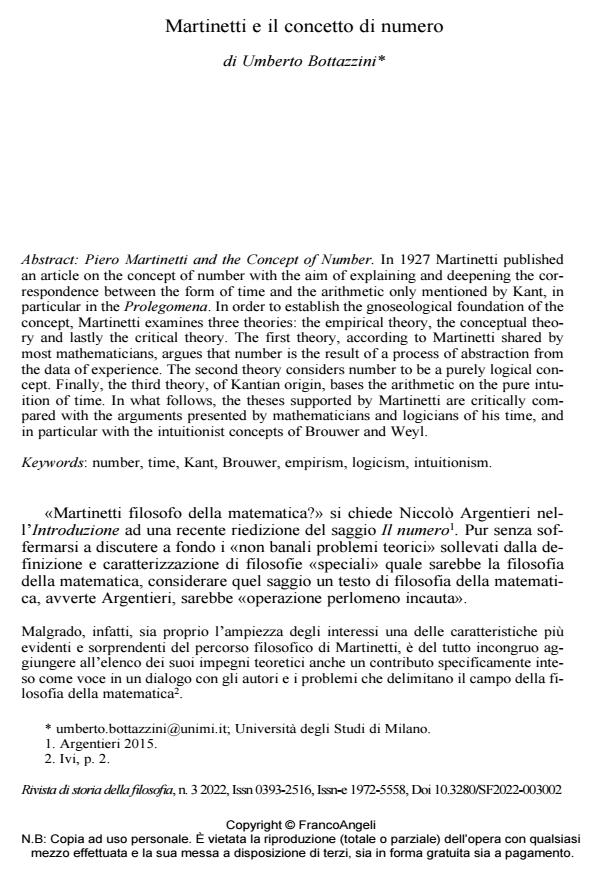Piero Martinetti and the Concept of Number.
Journal title RIVISTA DI STORIA DELLA FILOSOFIA
Author/s Umberto Bottazzini
Publishing Year 2022 Issue 2022/3
Language Italian Pages 11 P. 373-383 File size 167 KB
DOI 10.3280/SF2022-003002
DOI is like a bar code for intellectual property: to have more infomation
click here
Below, you can see the article first page
If you want to buy this article in PDF format, you can do it, following the instructions to buy download credits

FrancoAngeli is member of Publishers International Linking Association, Inc (PILA), a not-for-profit association which run the CrossRef service enabling links to and from online scholarly content.
In 1927 Martinetti published an article on the concept of number with the aim of explaining and deepening the correspondence between the form of time and the arithmetic only mentioned by Kant, in particular in the Prolegomena. In order to establish the gnoseological foundation of the concept, Martinetti examines three theories: the empirical theory, the conceptual theory and lastly the critical theory. The first theory, according to Martinetti shared by most mathematicians, argues that number is the result of a process of abstraction from the data of experience. The second theory considers number to be a purely logical concept. Finally, the third theory, of Kantian origin, bases the arithmetic on the pure intuition of time. In what follows, the theses supported by Martinetti are critically compared with the arguments presented by mathematicians and logicians of his time, and in particular with the intuitionist concepts of Brouwer and Weyl.
Keywords: Keywords: number, time, Kant, Brouwer, empirism, logicism, intuitionism.
Umberto Bottazzini, Martinetti e il concetto di numero in "RIVISTA DI STORIA DELLA FILOSOFIA" 3/2022, pp 373-383, DOI: 10.3280/SF2022-003002